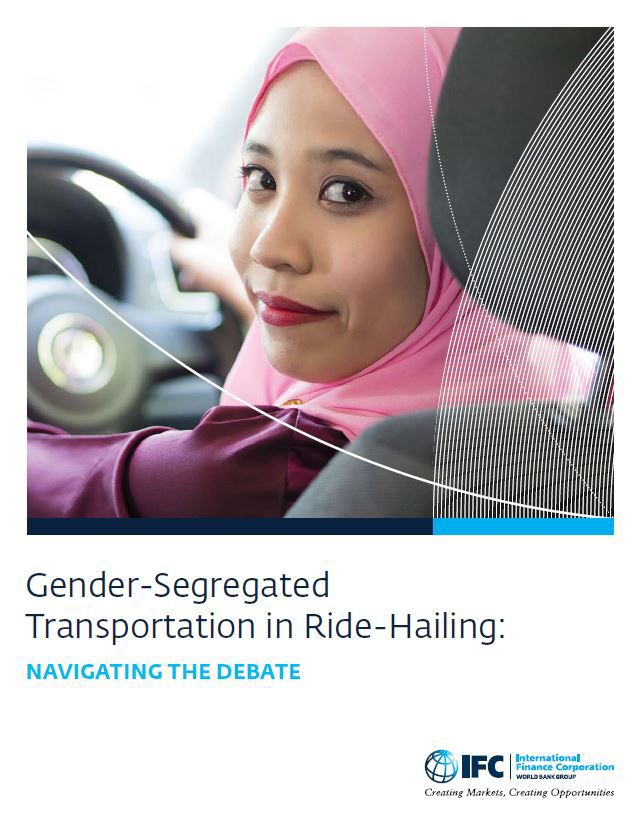This discussion paper comes at a time when countries are gradually reopening their economies amid the COVID-19 pandemic. A growing number of stakeholders are asking how to revive transportation systems and ensure they are accessible, affordable, and safe for all. That’s why the discussion around inclusive transportation is now even more crucial for women—who still face barriers both as passengers and transportation service providers, ranging from underrepresentation to widespread safety and security concerns.
This publication explores whether gender-segregated services—or women-only services—in ride-hailing help get more women on the road as drivers and riders, or just reinforce restrictive gender norms. The paper identifies seven distinct models, including, for example, a women-exclusive platform that allows women drivers to be matched with women riders.
The paper builds on interviews with over 30 companies globally and new data on use patterns of these emerging women-only services.
This research is possible thanks to support from the World Bank Umbrella Facility for Gender Equality.
Visit www.ifc.org/drivingequality for more resources.
